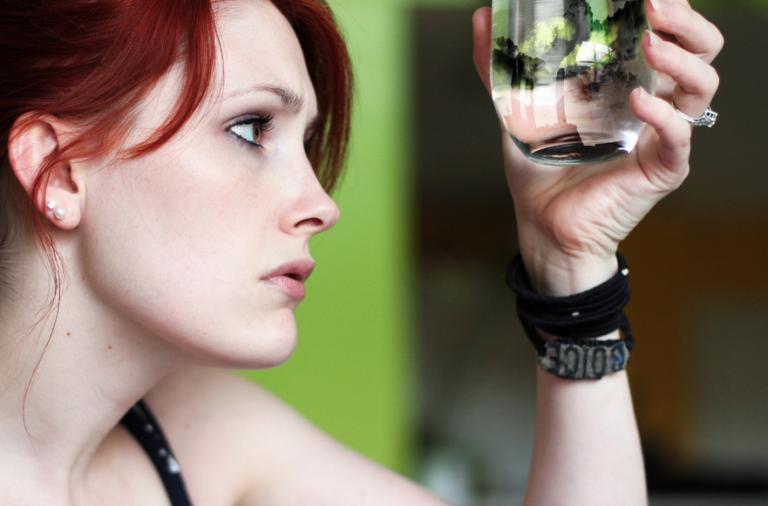He asked me if I had ever considered suicide. I told him, “yes,” and explained the circumstances. I asked if he had much knowledge about what life was like for women in a very conservative religious world. He acknowledged ignorance, so I spent a few minutes explaining it.
Suddenly, his face changed, and he said, “Oh now it makes sense. The state with the highest number of anti-depressant prescriptions written, and written primarily for women, is Utah.”
 One prominent suicide and then another combined with a statistical report showing that suicide rates are rising sharply: these stories have dominated the news for a while.
One prominent suicide and then another combined with a statistical report showing that suicide rates are rising sharply: these stories have dominated the news for a while.
In light of all this, dozens of my friends on Facebook posted their times of suicidal thoughts and/or attempts. It’s far more common than we want to think.
I, too, reached that point. It was over 20 years ago. The darkness around me appeared impenetrable. I faced debilitating emotional pain from the first moments of awakening from what was always troubled sleep until the time came the next night for more troubled sleep.
At least a thousand times a day, I would think, “I must find a way to die today.” At night, I would berate myself for still being alive, and resolve to do better the next day.
Clearly, I ended up living. Even so, I often look back to that time as the miracle of three women who would not let me go. None of the three ever met each other, but it was as though they metaphorically joined arms around me and refused to permit my demise. One was a Jewish/Christian high-powered attorney in NYC, another a closeted lesbian, the third an extraordinarily talented psychotherapist. I marvel at the endurance and patience of those three women.
Like Spade and Bourdain, outwardly all looked so good for me. But good it was not.
Recently, I have gone after Paige Patterson and the kind of fundy-Baptist theology that enabled him and still enables that world to keep women silenced and submissive. I do so because that very theology itself is what brought me so close to death.
The more I wrestled with the idea that God favors males in all eternity, the more I feared that I could expect more of the same demeaning experiences in heaven that I experienced on earth. If it was God’s perfectly revealed will for females to be under all circumstances submissive in church and home, why would it be any different in heaven?
Then, even in the full presence of God, I would not be able to use the fullness of my mind for fear it would in some way threaten some male. It sounded like hell to me anyway. Why not just ensure it by taking my own life, since my life on earth had turned to hell by the continued silencing?
And it made no sense: why would God have given me this intelligence and drive without me wanting to use it? My male “leaders” told me it was to teach me obedience. Wow. They also said that the profound sense of call to the ministry could not possibly come from God. Since God does not ever call women into theological/pastoral leadership, then what I sensed and heard must be a lie.
What a wonderful way to destroy a human being.
Several years ago, I sought to give my beloved brother a kidney [note: I was ultimately denied because of a small decline in my kidney function]. The donation was to take place at UCLA.
As part of the process to make sure I was a fit donor, I had an interview with a psychiatrist. Partly, he needed to ascertain my level of intelligence so he could tell if I were mentally intact after the surgery. But mostly, his job was to get a better understanding of my motivation for wanting to donate. Donors must have significant emotional stability and must not be doing this for reasons of wanting to hasten our deaths.
So, among other things, he asked me if I had ever considered suicide. I told him, “yes,” and explained the circumstances. I asked if he had much knowledge about what life was like for women in a very conservative religious world. He acknowledged ignorance, so I spent a few minutes explaining it.
Suddenly, his face changed, and he said, “Oh now it makes sense. The state with the highest number of anti-depressant prescriptions written, and written primarily for women, is Utah.”
Yes, Utah, home of the very much silenced female Mormons, with their unequivocally male-run church. The Mormon world entirely relegates women to home and to bearing and rearing as many children as possible.
It’s no wonder women are generally depressed. Better to keep them medicated and under the thumb than deal with the real issue: their lives and their restrictions are killing their souls. However, there is no safe place to let it out. So they turn on themselves and embrace depression and meds to survive.
I’ve often thought about three couples my first husband and I knew well when we were all newly married. All were part of the extremely conservative church world. All the husbands declared themselves fully in charge of the household and spiritual leadership duties. All of us wives declared ourselves perfectly happy to be under our various husbands’ authority.
One husband kept my friend and the multiple children she kept producing with amazing regularity in abject poverty. He, on the other hand, pursued his never-ending theological studies, always having one excuse after another for never quite finishing at the various places he studied. At each institution, he would end up arguing with an advisor or professor and walk out. Then he would start over someplace else, having ripped his family from what friends they had made in the current slum housing he had insisted upon.
This friend died of breast cancer, treated too late to keep her alive.
Another, after producing multiple children with amazing regularity, found the need for repeated cosmetic surgeries to keep her husband’s eye better focused on her rather than on the other women who periodically grabbed his interest. After one of the procedures, a blood clot broke loose and she suffered a devastating stroke.
It left her forever aphasic and with the right side of her body barely functioning.
The third, after producing multiple children with amazing regularity, died in a one-car auto accident. Her car smashed into a bridge abutment. She was driving and the only person in the car.
This is also known as suicide.
As for me, the fourth: I divorced him, finally deciding to choose life over death. My pastor phoned me and told me I was an evil and unrepentant woman. The organization I worked for at the time, a very conservative Christian institution, fired me, as they do not employ divorced women under any circumstances (they did have a divorced man on the staff).
Now, this is not exactly hard evidence. But I am the only one still both alive and healthy. And I got out. My debilitating depression disappeared overnight. No longer did I need to silence myself by suicide.
 Over the years, I have often noted the apparently increasing number of Evangelical women who suffer from various auto-immune diseases, in particular, wives of clergy. Could there be a causality here? I think it would be a fascinating research project, but that would mean getting these vulnerable women alone in safe spaces where they could speak their truths without repercussions. Probably couldn’t happen. Too much underlying fear of the aftermath if the husbands ever found out what really goes through those outwardly submissive minds.
Over the years, I have often noted the apparently increasing number of Evangelical women who suffer from various auto-immune diseases, in particular, wives of clergy. Could there be a causality here? I think it would be a fascinating research project, but that would mean getting these vulnerable women alone in safe spaces where they could speak their truths without repercussions. Probably couldn’t happen. Too much underlying fear of the aftermath if the husbands ever found out what really goes through those outwardly submissive minds.
So, I end up back in the midst of my extreme distress at the Evangelical war (see this post) on The United Methodist Church. The place I thought was a spiritual refuge, and a repository of inclusive, gracious theology, stands in danger of turning into what I left.
While this brand of Evangelicals insist they won’t eliminate women from their leadership world, they go on record as saying they will eliminate anyone who might be L.G.B.T.I. from their world.
Here’s my current description of the Evangelical world: a place where one people group will always need to have power over another, be it women, people of color or those who are not adequately sexually pure.
It’s a religion of power, not of grace. It’s a religion of “king of the hill” not “servant of all.”
And it’s a place where more and more hiding of the authentic self will have to take place. Too much authenticity will inevitably lead to expulsion. Depression will grow.
While we can all speculate, none of us know what is going on in the deepest recesses of the soul of another. Henry David Thoreau wrote, “All men lead lives of quiet desperation.” That may be too grand a generalization, but it is certainly true of entirely too many.
Some of the desperation must be laid at the feet of an unforgiving and graceless economy. But perhaps equally as much can be laid at the feet of the kind of unforgiving and graceless God that too many religions offer.
Would that we could be a place of healing, not a place to bring further hurt.
Photo credit: tankgirlrs on Visualhunt.com / CC BY-NC-ND
Photo on Visual hunt













